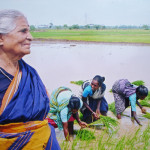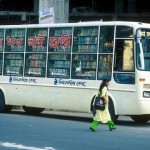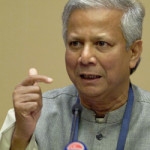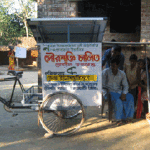 Category: Knowledge for Development
Category: Knowledge for Development

Indian couple wins Alternative Nobel Prize
Krishnammal Jagannathan, 82, and her husband, Sankaralingam, 95, have spent a lifetime fighting for the rights of the deprived, especially the Dalits, the former untouchables, who form the lowest rung of India’s ancient caste ladder. The couple – named Wednesday among the recipients of the 2008 Right Livelihood Awards, often called the Alternative Nobel Prizes […]

School feeding programme begins in 5 districts
School Group Feeding Programme has been introduced in five districts of the country to achieve the Millennium Development Goal (MDG) by the year 2010. The main target of introducing the programme is to reduce number of dropouts in primary schools, ensure quality education, increase number of children in primary schools, combat malnutrition and ensure cent […]

Biswa Sahitya Kendra gets UNESCO award
Biswa Sahitya Kendra has been selected for one of UNESCO’s most prestigious awards, the Jan Amos Comenius Medal, for outstanding achievement and innovations in the field of education. Chairman of Biswa Sahitya Kendra’s trustee board, Prof Abdullah Abu Sayeed will

Success that takes society into account
Nobel Peace Prize winner Muhammad Yunus founded a bank that has helped 7.5 million beggars and borrowers escape abject poverty in his native Bangladesh.Speaking to about 1800 people this week, he encouraged them to do what they could to change the world by using business techniques to solve everything from poverty to pollution. “We can […]

Telecentre on Wheels
When Change Initiatives (India) first tried to bring information sharing technology to remote areas of West Bengal, the NGO faced one major problem. There was no electricity. The remote villages of Ghoragacha and Madandanga lacked access to the electricity and connectivity they needed to enable ICT (Information and Communications Technology).




Recent Comments